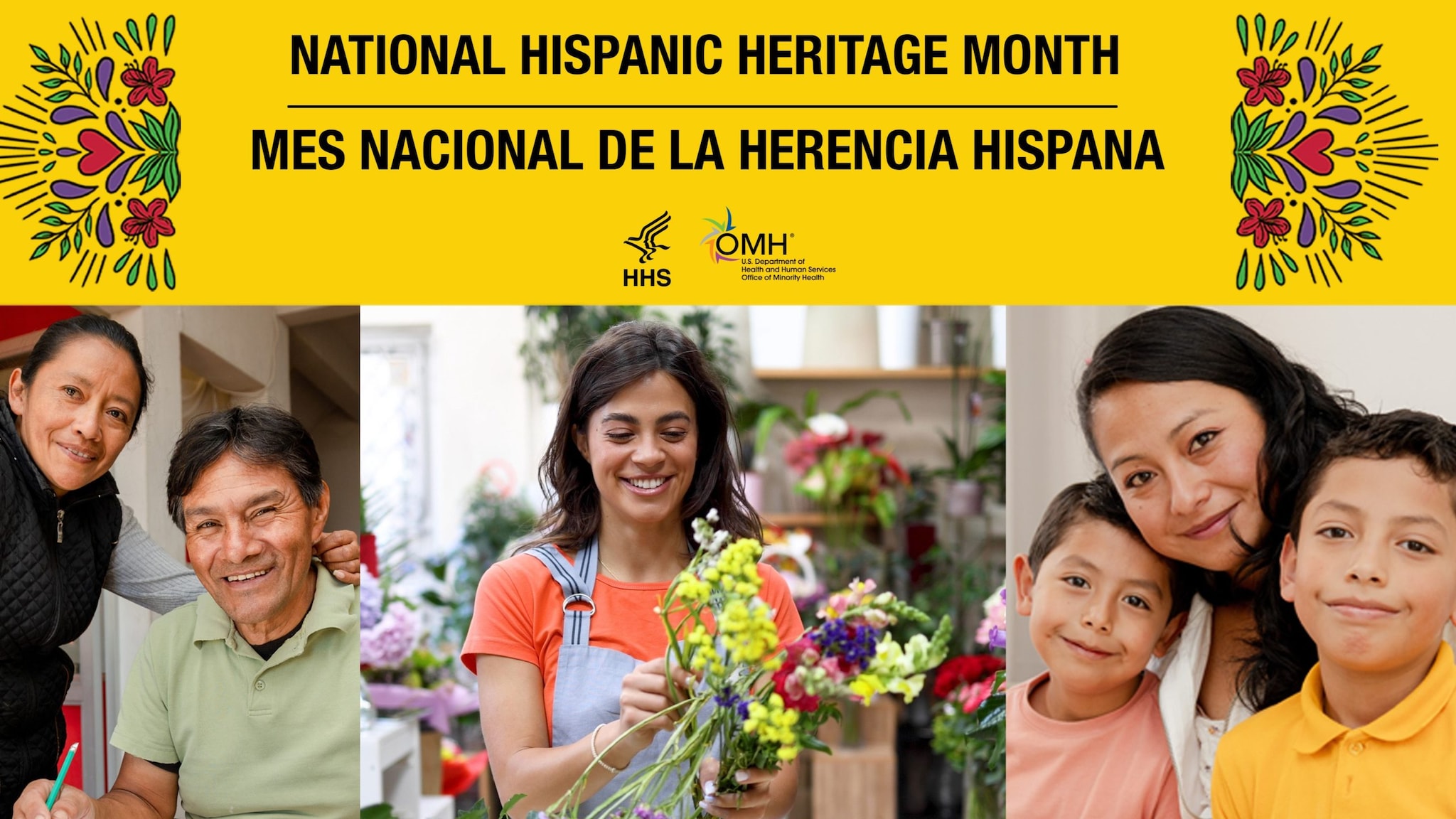What to know
One of the greatest strengths of our country is its rich diversity. Each year, we celebrate National Hispanic Heritage Month from September 15 to October 15, a time frame that accounts for the day of independence of several Latin American countries from which Hispanics or Latinos* trace their roots. The theme for the 2024 National Hispanic Heritage Month is Pioneers of Change: Shaping the Future Together.

Rich Ancestry and Roots
In 2024, approximately 1 in 5 people in the U.S. identify as Hispanic. During this month, we commemorate the diverse cultures, and many contributions Hispanic people make to U.S. society. As part of this celebration, we highlight the results of innovative work at CDC, through its employees, to address the health needs of Hispanic populations.
Hispanic Health
The conditions in which we are born, grow, work, live, and age shape our health. Hispanic people in the U.S. often face unfair and avoidable differences in these conditions, which can sometimes lead to worse health. Two examples of such conditions are health literacy and language access.
To maintain good health, people need to understand their health risks and be informed of the best options for optimal health. This is known as health literacy. People are in the best position to make informed health decisions that are appropriate for them when they receive health information in a timely manner, from a trusted resource, and in their preferred language. This timely and appropriate access to information is known as language accessibility.
While 1 in 5 people who are Hispanic in the US speaks English well, language accessibility for health information can be challenging since there are often a lack of trusted sources with accurate information who can communicate to Hispanic communities in the manner and language they prefer. Without tailored strategies for communicating information, people with limited English proficiency (LEP), including some people who are Hispanic, may develop poor health outcomes. This can be due to low health literacy, delays in getting critical information while waiting for translation, or from misinformation or biased information.
Pioneers of Change: Building Equity through Community Connections, Education and Professional Development
To respond to these dual challenges of literacy and accessibility, CDC has been a pioneer offering multilingual information resources and well-trained and informed bilingual professionals who bring lived experiences of communicating with underserved populations. CDC engages in multiple efforts to build these public health resources, provide support for improvements in the quality of the public health workforce, and improve communication to Hispanic audiences through trusted partners, such as Community Health Workers, or CHWs.
Since 2000, CDC has offered extensive web content in Spanish through Centros para el Control y la Prevención de Enfermedades CDC. CDC has also funded numerous Spanish and bilingual health education campaigns, such as for HIV, dengue and diabetes prevention. In 2024, CDC released an updated language access plan to ensure that language access services are available in multiple languages.
A diverse health workforce can lead to more culturally competent care, more effective public health programming, and better health outcomes. For over 35 years, CDC has sponsored public health education and training opportunities for students and young professionals interested in minority health. Some CDC education and professional development activities that include focused efforts to reach people who are Hispanic in the U.S. and its territories are:
- CDC established partnerships dating back to 1985 with many Hispanic-serving organizations such as the National Hispanic Medical Association, the Hispanic Association of Colleges and Universities (HACU), the Association of State Public Health Nutritionists, the Washington Center, and INROADS, Inc in support of educational and professional opportunities in federal government to Hispanic students and recent graduates.
- The CDC John R. Lewis Undergraduate Public Health Scholars Program and the Dr. James A. Ferguson Emerging Infectious Diseases Fellowship Program. Since 2010, through the Lewis Scholars and Ferguson Fellowship Programs, CDC funds academic and public health institutions who provide undergraduate and graduate students from across the country the opportunity to explore public health through hands-on training, public health project placement, mentorship, and professional development. Over the last ten years, 1 in 5 program participants were Hispanic and were recruited from across the U.S. and its territories.
As part of this program, CDC recognizes each year emerging public health pioneers advancing health equity with the CDC Williams and Hutchins Health Equity Award recipients.
Be a pioneer: More Strategies to Advance Health Equity through Connections
We all have a role to play. Explore some of the other CDC resources that seek to address the conditions and systems that influence health for people of Hispanic identity and ancestry.
- Health Equity in Action
- Health Equity
- Racism and Health
- Racial and Ethnic Approaches to Community Health
Learn more about health for Hispanic people in the U.S. and its territories.
- Footnote* - "Latino" is a gendered reference referring to people from Latin America, newer non-binary terms are in common use interchangeably with "Hispanic," such as Latinx and Latine. In the interest of consistency, the common reference used in this feature is "Hispanic."
